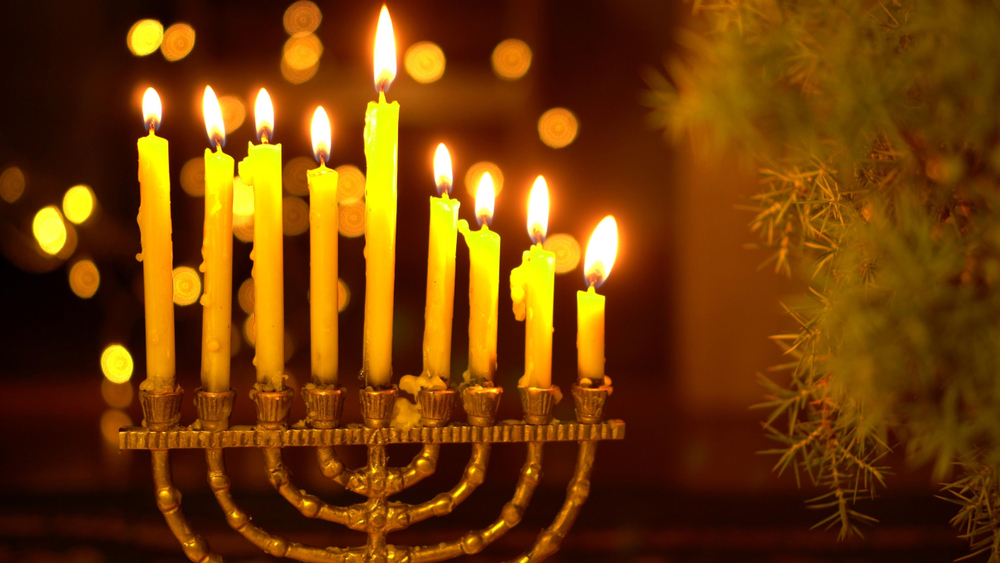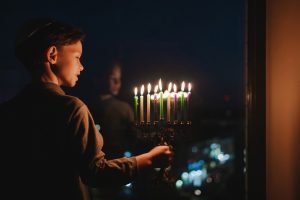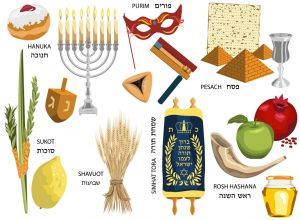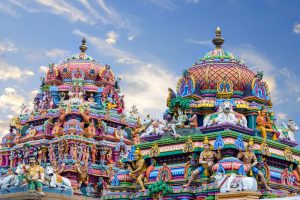The Jews celebrate Hanukkah, and the Christians celebrate Christmas. Oftentimes, it appears that both celebratory periods occur at the same time.
The Jews celebrate for eight days, while the Christians celebrate for one day, December 25. So, do Hanukkah and Christmas start on the same day?
The short answer is no. While this has happened before, the Jews follow a Hebrew calendar, which is separate from the Solar one that Christians use.
Therefore, it is a mere coincidence that Hanukkah and Christmas begin on the same day with recurrences being many years apart.
Table of Contents
How often do Christmas and Hanukkah coincide?
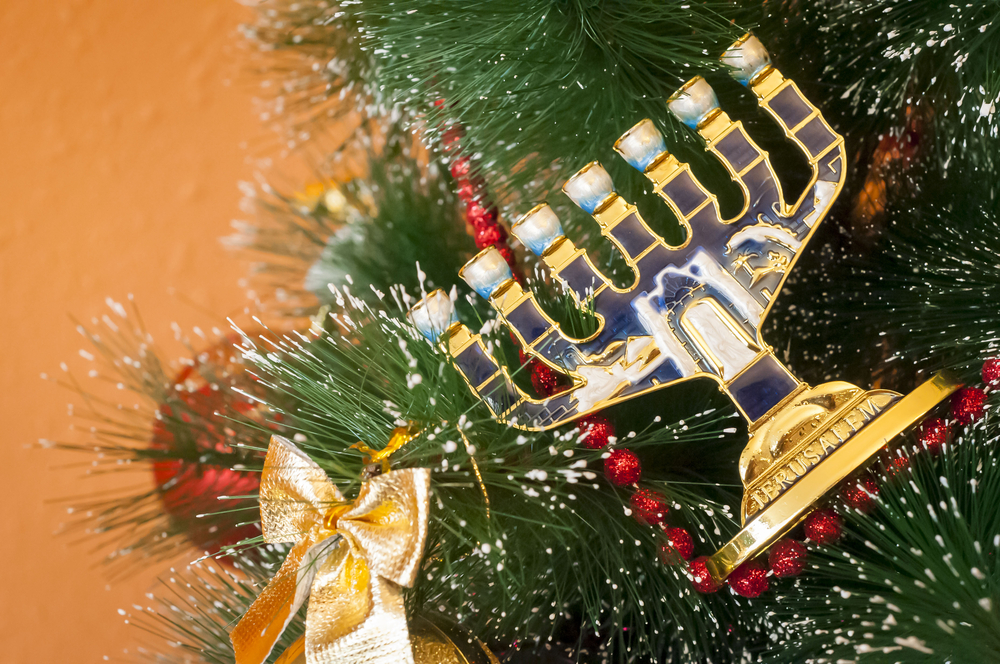
Christmas Day and the first night of Hanukkah fell on the same day in 2005 because the sunset on December 25 fell on the same day as the start of Hanukkah.
Until 2024, there won’t be a repeat of this occurrence.
The sunset of December 24 in 2016 had corresponded with the first day of Hanukkah, making December 24 both Christmas Eve and Hanukkah’s start.
Until 2027, this won’t happen again.
When is Hanukkah and what does it commemorate?
After Kislev 25, Hanukkah falls in late November or early December, depending on the Hebrew calendar.
It is said that a tiny group of Jews recovered their Holy Temple in Jerusalem hundreds of years ago, which is how the Jewish festival got its start.
When the Jews retook the temple, there was barely enough oil for one night’s worth of sacrifices.
The oil, however, lasted for an impressive eight consecutive nights. In modern times, candles are lit for each of the eight nights of the holiday.
What is a menorah?
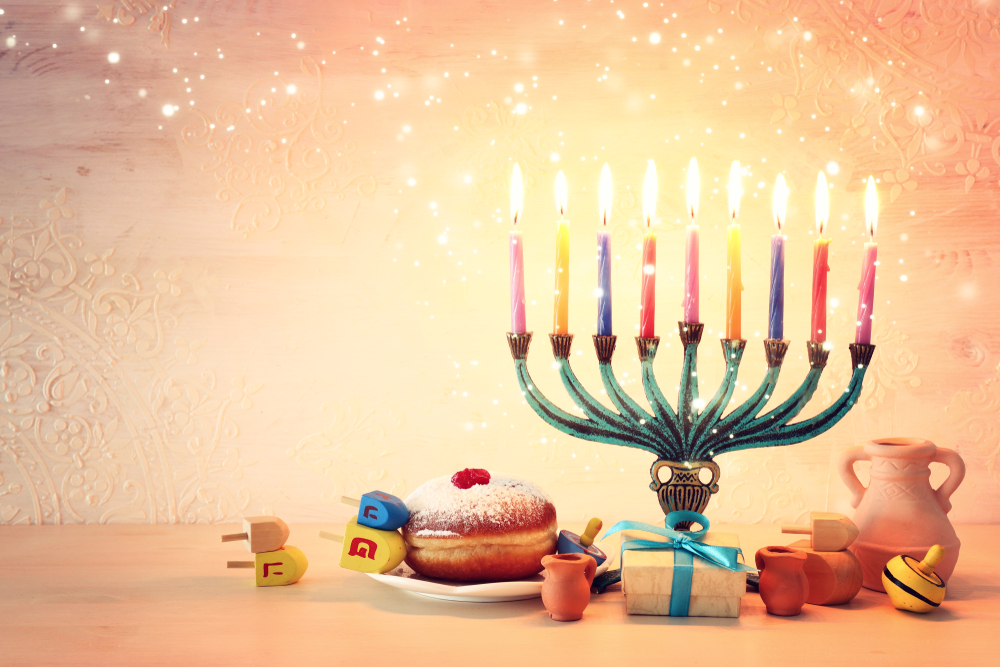
The Hanukkiah, or “menorah,” is illuminated every night during Hanukkah. According to Milwaukee Jewish Federation Vice President of Leadership and Global Rabbi Hannah Wallick, a menorah contains seven candle-holding branches, whereas a Hanukkiah has eight, plus an additional branch that bears an assistance candle for lighting the others.
Menorahs and Hanukkiahs are a common sight in the windows of Jewish households and other communal locations like shopping malls and municipal hall grounds during the Hanukkiah season.
What is Christmas and what does it commemorate?
Christmas, which falls on the 25th of December, is both a holy religious holiday and also a commercial and social extravaganza that is observed all over the globe.
People all over the world have been celebrating it for the past two millennia with a variety of religious and pagan customs.
The conception of Jesus of Nazareth, a religious leader whose doctrines form the foundation of the Christian faith, is marked on Christmas Day by Christians.
Traditional Christmas activities comprise giving presents, installing Christmas trees, worshiping, and preparing family meals.
In 1870, December 25th became the official day to celebrate Christmas in the United States.
How do Christians and others celebrate Christmas?
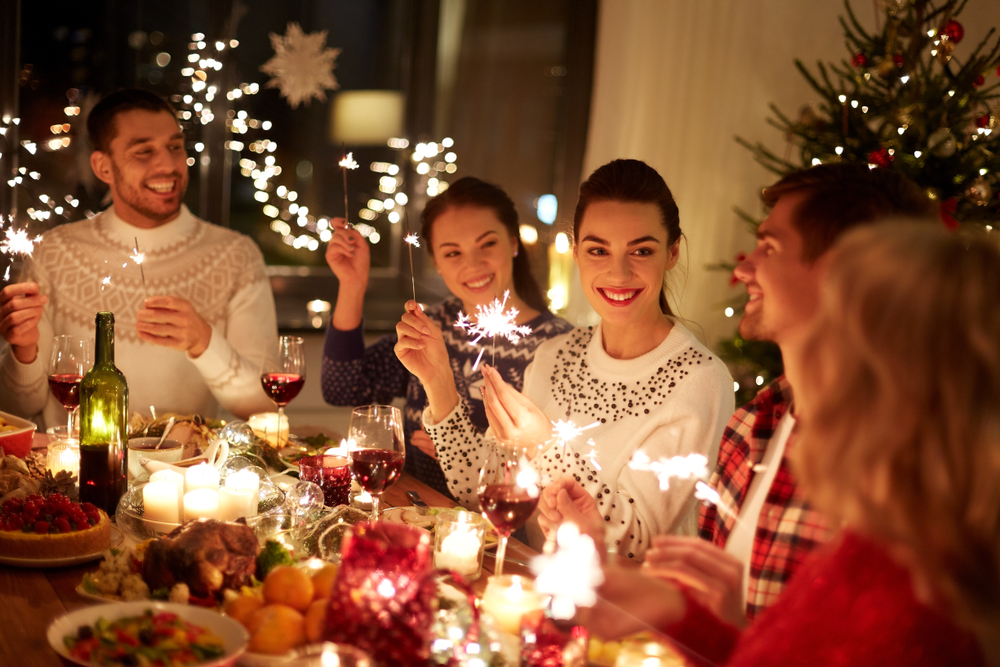
When it comes to celebrating the holiday season, many American families mix and match religious and secular practices with their own traditional beliefs.
The conventional Christmas dinner fare includes roasted turkey as well as ham, but regional variations include a range of vegetable dishes; seafood, pork, and chicken are done in many different ways.
It is customary in some parts of the Southwest to light luminarias (brown paper bags filled with sand then lit with a candle) for Christmas Eve.
The parade depicting Mary and Joseph’s journey to Bethlehem, known as Las Posadas, is celebrated by several Mexican Americans.
St. Lucia festivals are held by Swedes in the United States, and in Puerto Rico, circles of people sing classic melodies as they move from home to home, “surprising” and “awakening” their neighbors.
Why is Christmas also a federal holiday?
Federal courts have ruled that Christmas is a legal holiday, even though many Americans consider it to be a religious celebration.
According to one court’s reasoning, “the government is doing little more than acknowledging the cultural relevance of the holiday by granting public sector workers a paid holiday” at Christmas time.
There is some overlap in the “holiday season” between Christian and non-Christian events observed around the same period of the year, like Christmas, most notably African American Kwanzaa as well as Jewish Hanukkah.
How did American Christmas begin?

The Puritans of New England in the 17th century were opposed to over-the-top Christmas festivities.
In 1659, the Massachusetts colonizers temporarily had illegal Christmas celebrations, but for the rest of New England as well as Pennsylvania, it was just another day of the year.
Costumed dancers walked door-to-door in British North America and received small presents of foods and beverages as part of the festivities.
Christmas as we know it now was born in the late 19th century when the practice of buying presents for small children was introduced.
The prominence of “Christmas shopping” throughout the holiday season began to rise.
Other Christmas customs also got their start in the late 1800s. As a result of works like the 1823 poem “A Visit from Saint Nicholas,” Santa Claus, descended from the Dutch Sinter Klaas as well as the German Nicholas, took on the role of the merry gift giver and reindeer carriage captain.
How did the Christmas tree tradition begin?
In the 16th century, Germany introduced the concept of the Christmas tree. To teach his children about the majesty of divine creation, Protestant leader Martin Luther is said to have hung lighted candles from a tree in his home.
19th-century Christmas trees began to flourish in both the United Kingdom and America.
When it comes to decorating for the holidays, many Americans opt for an evergreen tree or a recyclable metal or plastic version.
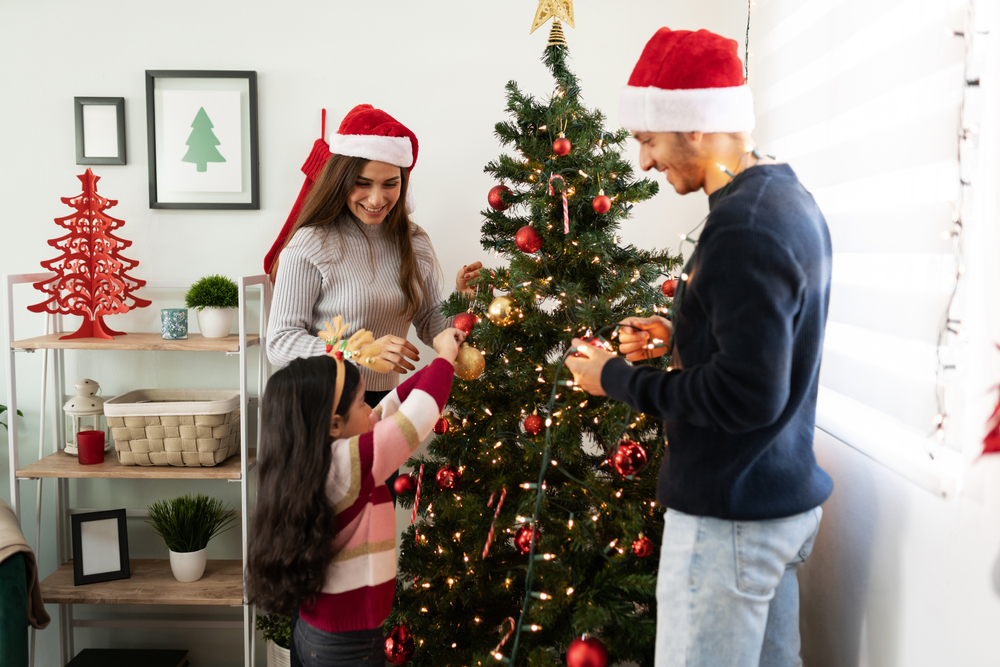
On the morning of December 25, numerous families place their Christmas presents underneath the tree, either with friends and family or, as many little children think, by Santa Claus himself.
What is Chrismukkah?
Chrismukkah is a neologism that refers to the fusion of the Christian celebration of Christmas with the Jewish festival of Hanukkah.
It first appeared in the middle classes of German-speaking Jews in the nineteenth century.
Aside from the United States and several other nations, Chrismukkah is widely celebrated. The O.C., an American television series that premiered in December 2003, helped popularize the phrase.
All-Jewish homes can also observe the occasion as a secular variation of Christmas.
How do Christians and Jews deal with the proximity of their celebrations?
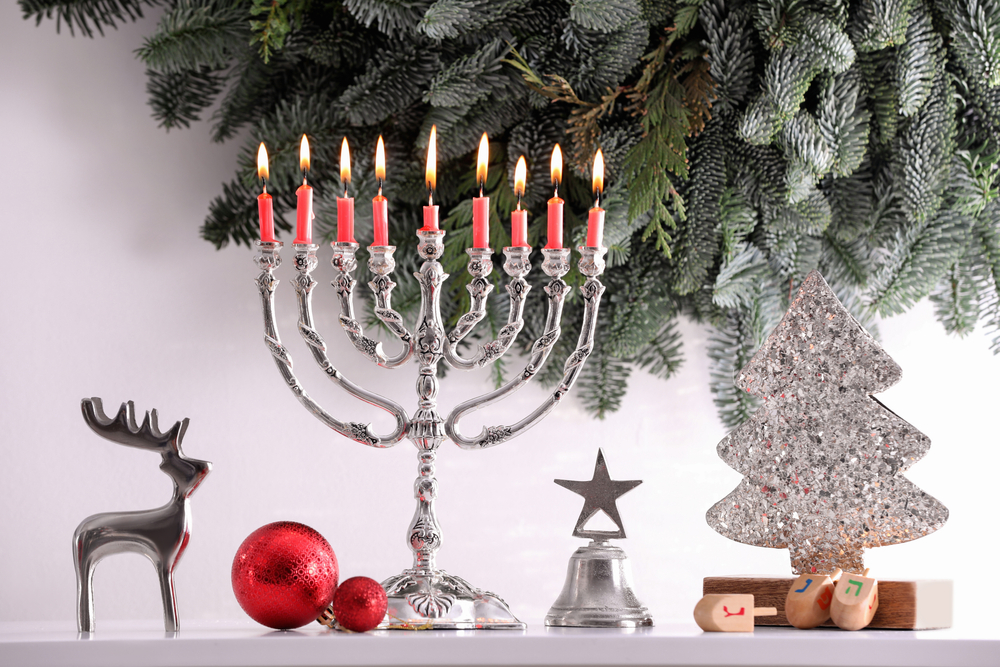
The “December Dilemma” faced by Jewish families in predominantly Christian nations arose as a result of Hanukkah beginning on the 25th of Kislev (last of November/early December), so close to Christmas.
Hanukkah and Christmas have been combined in subtle forms since the 19th century in Germany and Austria.
A mixture of “Weihnachten” (Christmas) and “Hanukkah” is known as Weihnukka in German. Essentially, neither group has much of an issue with the fact that these two holidays are so close together.
When did Germany start celebrating Christmas?
In the 19th century, Christmas had become a holiday in German-speaking nations where ideals, including family and generosity, took precedence over spiritual importance.
As a result, many people regard traditional Christmas practices such as lighting Christmas trees, decorating the tree, giving gifts, and eating Christmas supper as more seasonal traditions than Christian ones.
Do some Jews celebrate Christmas?
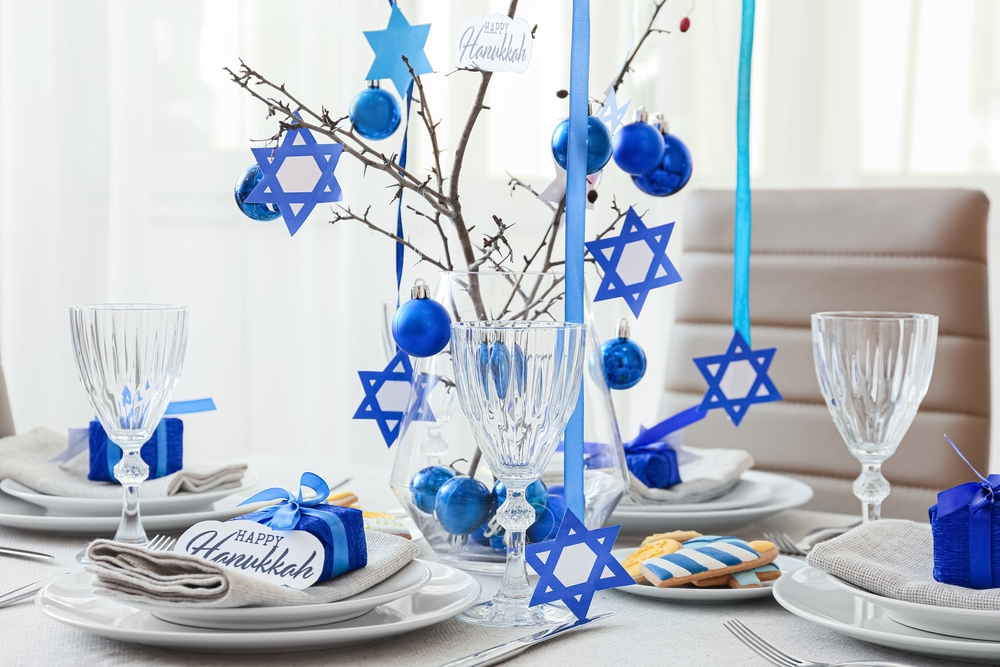
Assimilationist German-Jewish bourgeoisie families often celebrated Christmas as a worldly winter feast rather than a religious one.
Jewish aristocrat Fanny von Arnstein, a migrant from Berlin, put up the first known Christmas tree in 1814 in Vienna.
The idea of a Hanukkah was made by Zionism’s pioneer Theodor Herzl because he permitted his children to decorate a Christmas tree in his home.
A Hanukkah tree or bush, a Jewish equivalent to the Christmas tree, was a common feature of this holiday and influenced the Jewish Hanukkah celebration.
There are also eight-flap Hanukkah calendars and a Hanukkah Man who brings gifts to the youngsters as a nod to Santa Claus.
When did the Western world start observing Hanukkah?
After the Holocaust and the mass extermination of Jewish life throughout central Europe, the cultural landscape in the United States began to take root.
Because of interfaith relationships between Christians and Jews as well as the desire of both partners to keep their festivals and rituals, it has become normal practice in this area to observe both festivals.
Among Jewish families, the so-called “December issue” arose, namely a desire to incorporate some of the customs, rituals, and presents associated with Christmas.

In particular, presents for the Hanukkah festival were intended to boost this celebration and counterbalance Christmas with something of roughly the equivalent sentimental significance.
They still serve that purpose today.
The popular sitcom Friends frequently featured Jewish actors Rachel, Ross, and Monica spending Christmas alongside their Christian friends throughout the 1990s, which symbolized numerous current American Jewish homes that celebrate Christmas in what seems like a secular approach.

